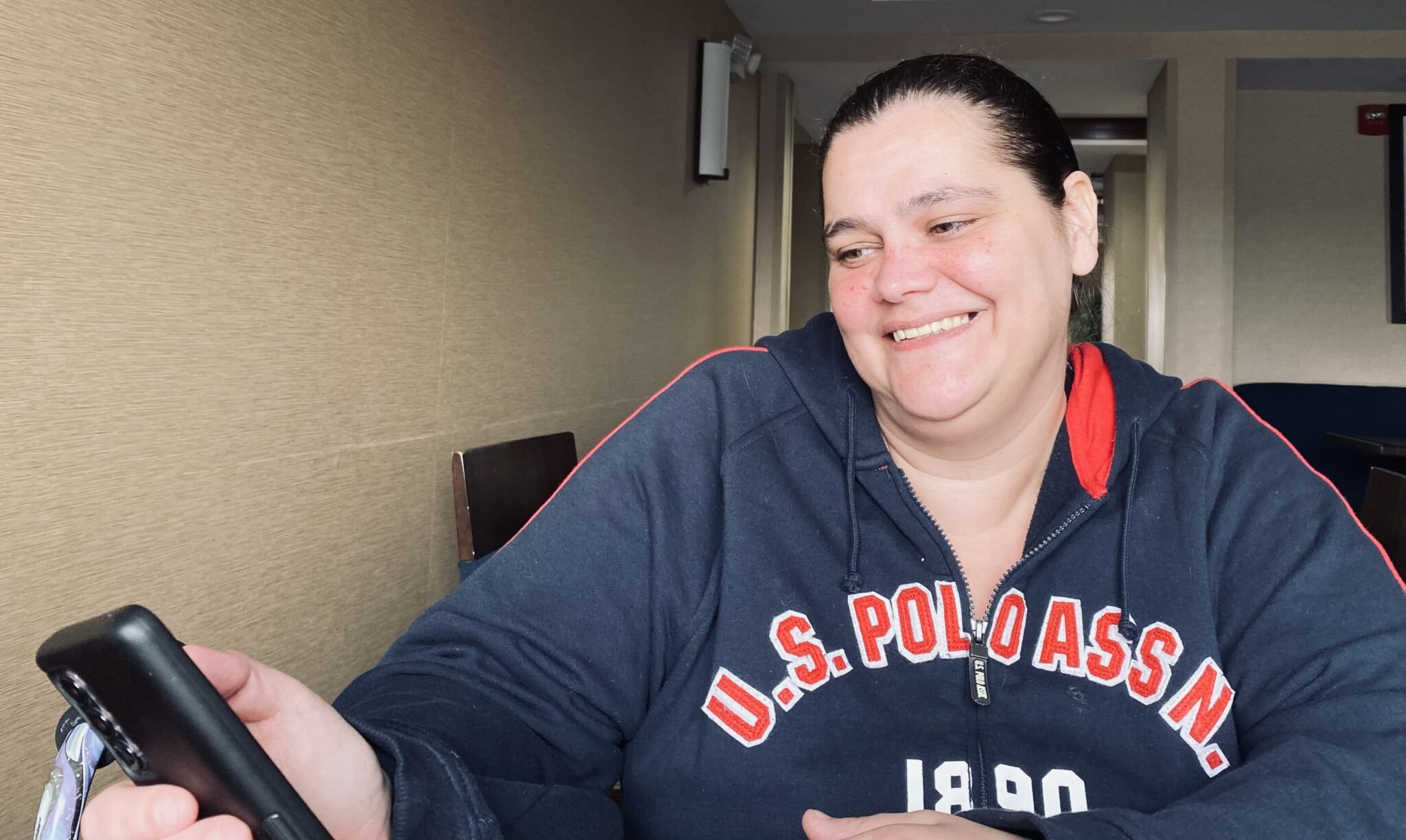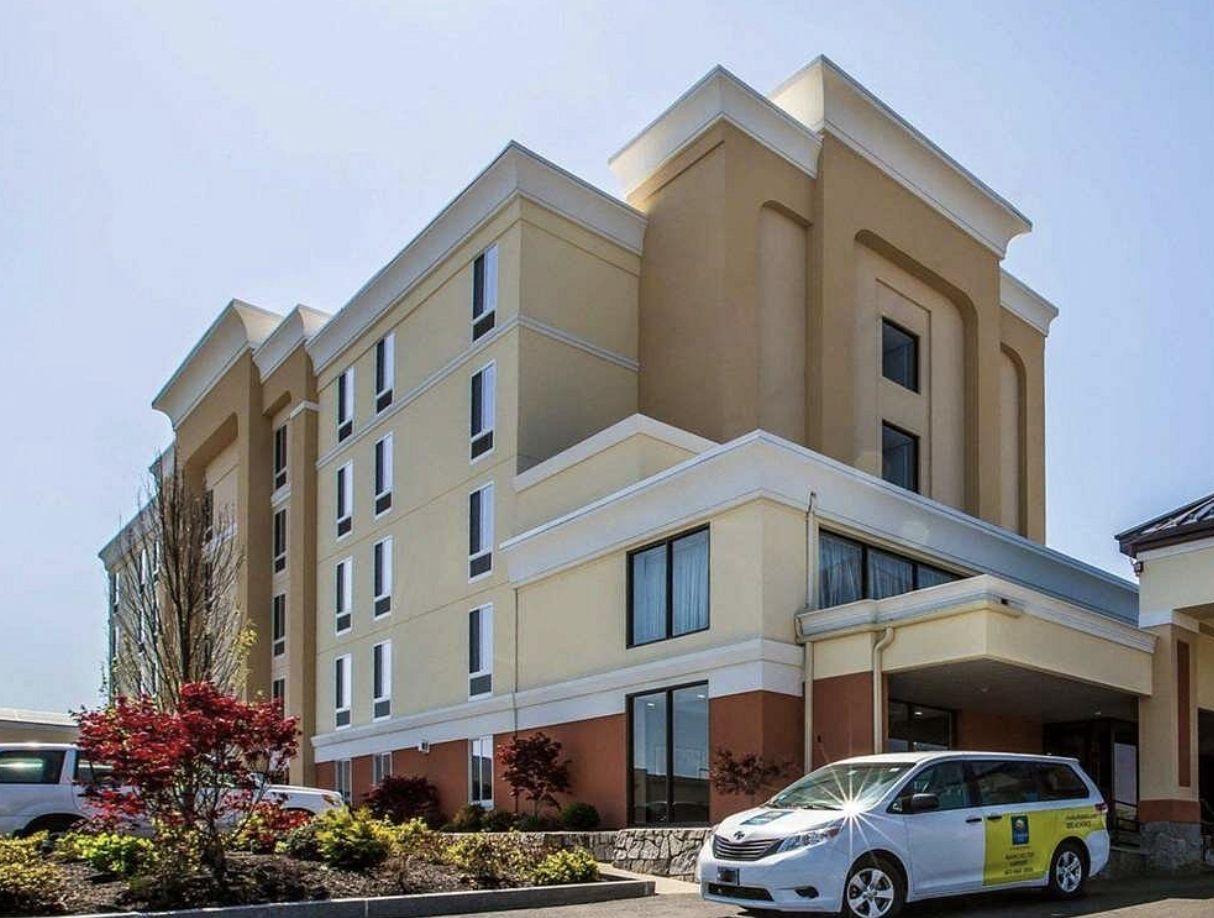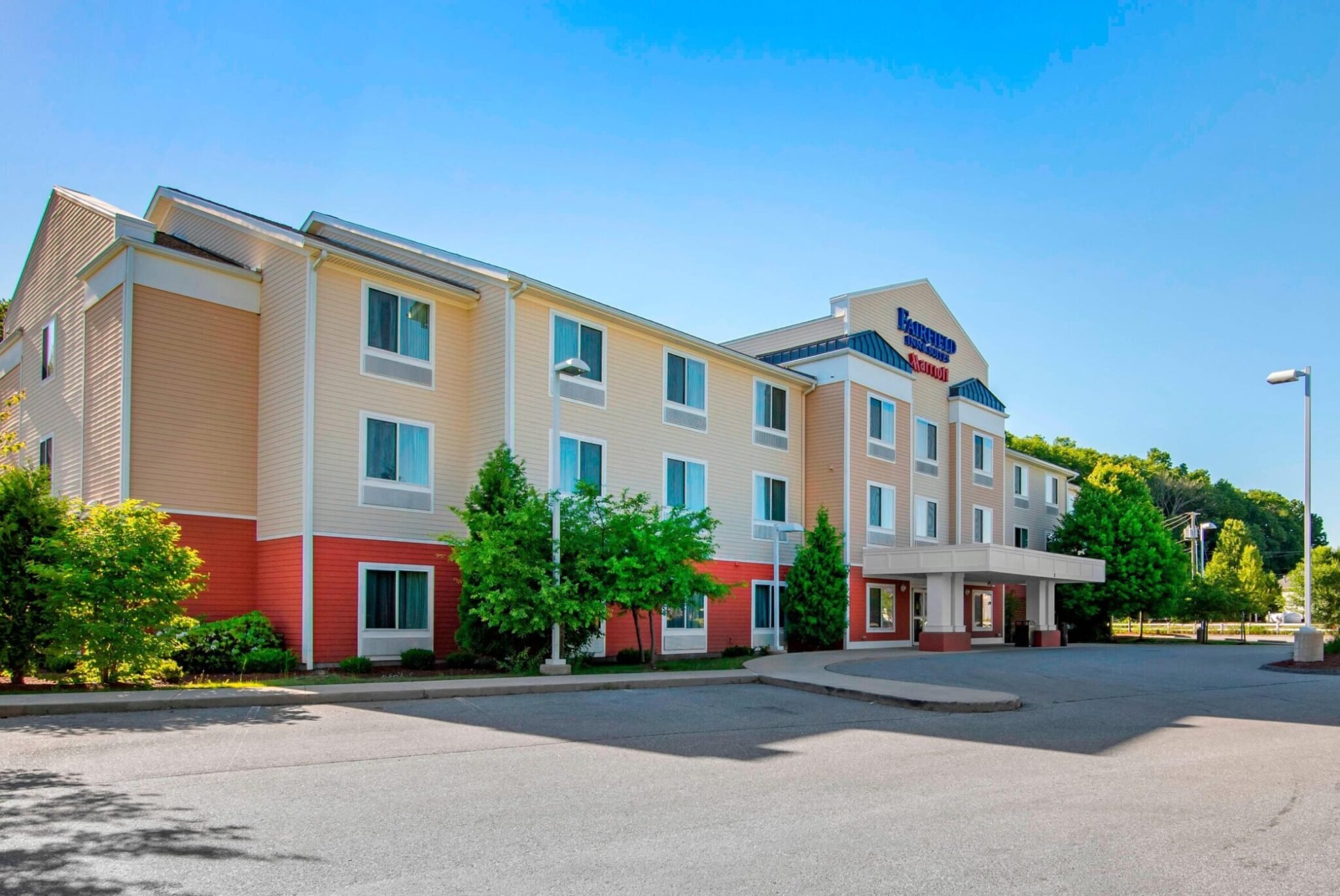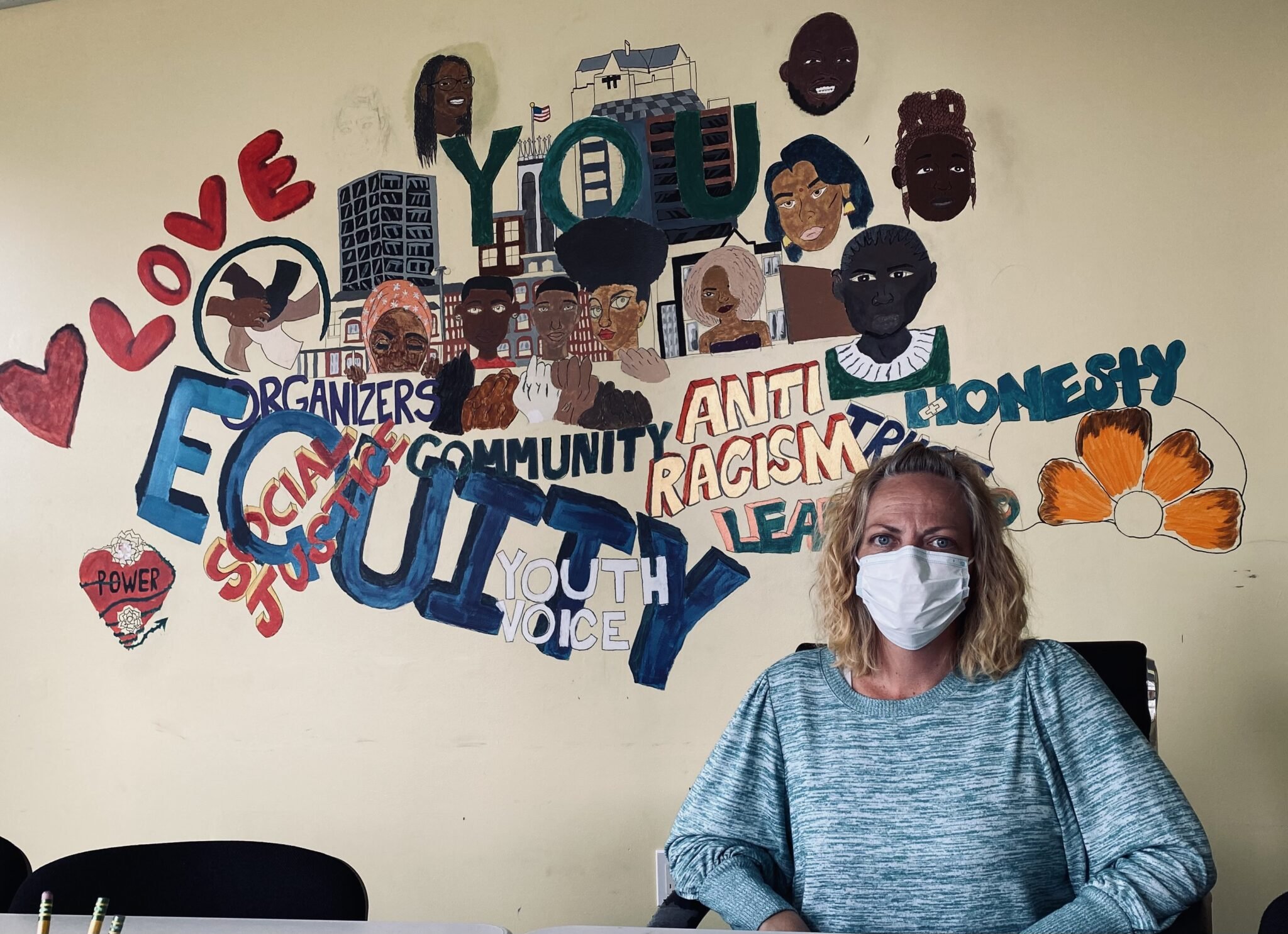Pat Grossmith, for Manchester Ink Link/Granite State News Collaborative





MANCHESTER, NH – Two women, housed for months in area hotels at the government’s expense, are desperately looking for places to live now that the NH Emergency Rental Assistance funding is ending.
Nicole Eastman, 35, living at the Comfort Inn with three of her four teenage daughters for the past seven months, is having no luck finding an apartment. Neither is Roxanne Hunt, 58, who for 17 months has made her home at the Fairfield Inn in Hooksett.
“What am I supposed to do?” an anguished Hunt said in a telephone call from her hotel room. “I’m so tired of being worried about this.”
Both women worked, supporting themselves and, in Eastman’s case, her family, but unforeseen circumstances led them both down the path to homelessness.
Eastman said she has applied for 258 apartments since being in the Comfort Inn for seven months. She didn’t get any of them.
“Unfortunately, there’s nothing you can do,” she said. “You just have to bide your time and pray.”
She said, “Of course, it sucks but my kids are safe and they have a roof over their heads.” At the same time, however, she said her daughters are “terrified” about what is going to happen to them.
Eastman was a teenage mom at 16 and by the time she was 21, the mother to four daughters, now ages 14 to 19. While in high school, she enrolled in a culinary program and became a certified chef. She supported her family while working at restaurants in the Franklin area.
In 2013, however, on Interstate 89 North a tractor-trailer struck her car. The collision forced her car off the road where it rolled over seven times, she said. Her nephews, ages 5 and 7, were with her at the time but only suffered bumps and bruises.
Eastman, on the other hand, was left in a wheelchair for four years, a time when she was unable to work. She was partially paralyzed on her right side. She gradually learned to walk again, first with a walker and then with the help of a cane.
Once she was able to use a walker, she began to work again for a catering company in Sandwich. A woman she met then gave her a job at the Village Green Café, also in Sandwich.
“It was a job and it made me happy and it made me feel I accomplished something in life,” she said.
She worked there for about a year and expected to take over the restaurant, but the prior owner – who also owned the building the restaurant was in — took it back. At the same time, a house she was trying to buy was sold out from under her.
It was December 2019, just before COVID-19 hit. Eastman and her daughters went to live with her aunt in Waterbury, Conn. “We were there for three years,” she said. “It was probably the happiest three years of my life.”
Things became quite expensive during COVID and her aunt and uncle sold their house. Once again, the family was uprooted. She returned to New Hampshire in 2022. A friend of her mother’s said she could park an RV in their driveway and hook it up to water and electricity for $700 a month.
When she arrived, however, they wouldn’t hook up the water.
Eastman said she went to Franklin city welfare to try and get help. “The woman was extremely rude,” she said. “The first time, she wouldn’t give me an application.”
When winter arrived, she said the two separate space heaters she had were not enough to keep the family warm in the RV.
She returned to the welfare office. “I begged the woman to help me,” she said. The family was placed in a hotel in Franklin. Eastman then got a job as a chef at JJ’s Woodfire Pizza and Tavern in Franklin.
“Everything was going really good,” she said. “The girls were doing great in school. I was saving up money and we were so close to getting an apartment and then the accident happened.”
It was June 21, 2022, when a 74-year-old woman slammed her car into Eastman’s at 60 mph, hitting the driver’s side. Three of her daughters were in the car with her. She broke her right leg in three places, the emergency brake went through her left foot and she suffered a concussion.
She was first seen at Cheshire Medical Center, who she said sent her home that same day in a cast and a boot. The following morning her mother called for an ambulance because Eastman was delirious from an infection in her foot.
She was taken to the Elliot Hospital where she was placed in a full-body cast and hospitalized for a week. She then was sent to Encompass Health Rehabilitation Hospital in Concord for another three weeks.
All three of her daughters were also injured in the crash, with one transported the same day for treatment at the Elliot.
When she was being discharged from Encompass, the medical staff said she could not return to the Franklin hotel because it was not handicapped accessible and she was “non-weight-bearing.”
That is how the family came to live at the Comfort Inn, where a handicapped-accessible room was available.
Her total income is $1,650 a month, with $850 of that death benefits for her twin daughters whose father died three years ago.
“I’ve tried to find an apartment but there’s nothing I can afford,” she said. And, with three daughters, she is told “there’s too many people” for a two-bedroom apartment.
Families in Transition, she said, has a three-year wait list and the federal voucher program, formerly known as Section 8 housing, has an 8-year waitlist and is no longer taking applications.
“I don’t have anywhere to go,” she said.
NH Housing has tried to reach out to all the people housed in hotels with information on agencies that could help, including local welfare offices. Manchester, Eastman said, told her she has to reach out to Franklin’s welfare department, the city of origin.
“They are so mean. They treat you like you’re a scumbag,” she said. “They tell you to call 211 and then give you a list of shelters.”
She has been looking for apartments and contacting shelters every day for the seven months the family has lived in the hotel. “CAP (Community Action Program – Southern NH Services for Hillsborough and Rockingham counties) program made me sign five different releases, including for Manchester Mental Health. They told me they might be able to help.” However, she said her family is already seen there and was told there was nothing they could do.
“One, they shouldn’t have access to anyone’s mental health records but if you don’t sign, then you are out and definitely will have no place to stay,” she said.
Welfare required her to provide them with all her bank statements and financial information, which she said she understands since she is asking for help. “Once you have (provided that information), you have to provide receipts for anything you spend, down to 50 cents,” she said. That included receipts for tampons she bought for her daughters. Any savings also had to be documented, she said.
She said she dealt with welfare offices in both Franklin and Manchester and both treated her badly.
“I’m a resident of Franklin technically even though I’m stuck in Manchester and can’t go back to Franklin,” she said.
A cell phone, she was told, was not a necessity. And, she was not allowed to pay for doing her laundry, the Manchester office told her, even though she is in a hotel and has to pay to do it.
“Welfare makes it borderline impossible,” to try and save money and try to get out of the hotel, she said.
What is also difficult is that she can’t cook while in the hotel. Only a microwave and air fryer are allowed. It results in her having to buy the more costly microwaveable or prepared food, She has gained 40 pounds as a result of not having a healthy diet and from the stress of it all.
Hunt’s path to hotel living is just as compelling.
In 2015, she and her husband divorced. As part of the divorce decree, she said her husband was supposed to pay the mortgage, taxes and insurance on the house. He defaulted. Hunt said she paid off the mortgage but the taxes were in arrears and Goffstown assessed an additional 18 percent interest on what was owed. The town forced the sale of her home for back taxes.
“The town of Goffstown left me homeless,” she said. “I had lived there for 30 years. I paid off my house. I had my own home.”
Hunt ended up with $40,000 from the sale and the town took the rest.
At the time, Hunt was a floral designer working in flower shops and also designing perennial gardens for golf courses. “It’s fun,” she said.
After she lost her home, she rented an apartment on Mast Road in Goffstown. When COVID-19 hit and everything shut down in March 2020, Hunt said she told her landlord she would not be able to pay the full $1,500 a month rent but she would pay something. She said they agreed to take less for a time.
“We all agreed upon it and it was fine until it wasn’t,” Hunt said.
On Sept. 26, 2021, she returned to her apartment to find she was locked out. “I never received an eviction notice,” said a sobbing Hunt.
She called Goffstown police. Officers who arrived called the landlord who told them there was nothing he could do, that they had to contact the Hillsborough County Sheriff’s Office, Hunt said.
“The Goffstown police were so kind and they said to the landlord can she just get in and get some things, like her pajamas,” Hunt said. “He said no. He wouldn’t let me go in.”
The landlord, according to Jessica Margeson, tenants’ rights activist with the Granite State Organizing Project, illegally locked out Hunt. And, she said, he later had an estate sale and sold all of Hunt’s belongings.
The day she was locked out, Hunt ended up spending the night at a neighbor’s and the next day finished a job she was doing at the Derryfield Country Club. She looked everywhere to find a place to stay and ultimately settled on the Fairfield Inn in Hooksett.
Hunt paid for the lodging for the first six months.
“If it wasn’t for Jessica I don’t think I still would be able to be here,” she said. “She’s awesome.”
When there was a mix-up in her paperwork filed with SNHS in February 2022, Hunt almost got booted out of the hotel. It was State Senators Lou D’Allesandro and Kevin Cavanaugh who, at lunch together when Margeson called D’Allesandro, went to the Fairfield Inn and paid for Hunt’s hotel room through the weekend until SNHS could straighten it out the following Monday.
Hunt’s situation, when it comes to getting public assistance, is complicated. Margeson said SNHS views her as a displaced Manchester resident. City welfare sees her as a Hooksett resident and says that is where she should seek help.
April 1, when Hunt has to be out of the hotel, is days away. She still hasn’t found another place.
“I have been trying to get out of this place since the day I came here,” Hunt said. “You have no idea what it is like to live here. I live in a room. I owned a home. I owned animals. I had gardens and flowers and birds and trees. This isn’t living.”
Margeson said she expects that most of the people currently housed in hotels will ultimately end up in shelters, doubled up with family or friends, living out of their cars or on the streets.
These articles are being shared by partners in The Granite State News Collaborative. For more information visit collaborativenh.org.
